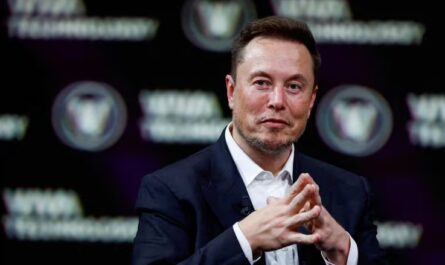Key Takeaways
-
Apple CEO Tim Cook is preparing strategies to mitigate the impact of potential tariffs proposed by President-elect Donald Trump.
-
China remains a critical hub for Apple’s manufacturing, making the company vulnerable to trade restrictions.
-
Trump has suggested a 60% tariff on Chinese goods and a 20% tariff on products from other countries, putting major tech companies at risk.
Apple Braces for Trade Challenges
Reports indicate that Apple is actively preparing for possible trade penalties under the incoming Trump administration. According to Mark Gurman of Bloomberg, CEO Tim Cook is taking measures to reduce the impact of proposed tariffs that could affect Apple’s extensive supply chain.
Apple’s dependence on China is central to the discussion. Despite efforts to diversify production, the majority of Apple’s products are still manufactured in China, which makes the company especially sensitive to any trade restrictions. Gurman highlighted this dynamic during his weekly Power On episode for Bloomberg, noting that Apple may need to negotiate carefully to maintain both profitability and market position.
Trump’s Tariff Proposals and Apple’s Vulnerability
President-elect Donald Trump has made trade tariffs a central part of his economic strategy. Specifically, he has proposed:
-
60% tariffs on Chinese goods, which would directly impact Apple’s iPhone, MacBook, and other products.
-
20% tariffs on goods from other countries, affecting Apple’s global supply network.
These measures are part of Trump’s “America First” policy, which aims to prioritize domestic manufacturing and reduce dependency on foreign imports. For Apple, which maintains a globalized supply chain, these tariffs could increase costs and affect pricing for consumers.
Tim Cook’s Strategic Approach
To address these risks, Tim Cook has reportedly prepared multiple strategies. These include:
-
Negotiating with the incoming administration – Cook is expected to leverage his working relationship with Trump to advocate for measured policies.
-
Diversifying production – Apple has begun ramping up its manufacturing footprint in India and other regions to reduce reliance on China.
-
Highlighting competitive risks – Cook could argue that tariffs on iPhones would benefit competitors such as Samsung, potentially influencing Trump’s stance.
Mark Gurman notes that Cook is experienced in navigating complex political and trade landscapes. Between 2017 and 2021, he maintained regular visits to the White House to discuss Apple’s business concerns, including tariffs and international regulations.
Historical Context and Apple’s Government Relations
Apple’s relationship with U.S. administrations has been nuanced. While the company publicly supports progressive policies, it has also worked with Republican leaders when strategic interests align. Trump himself has praised Tim Cook, suggesting that Apple’s success under Cook has exceeded what might have occurred under its founder, Steve Jobs.
In a recent podcast, Trump mentioned that Cook personally called him to discuss a $15 billion fine from the European Union, which is cracking down on Apple’s business practices. This conversation highlights the broader context in which Apple navigates both domestic trade policy and international regulatory pressures.
Leveraging Global Manufacturing Hubs
Apple’s supply chain is highly globalized, which offers both challenges and opportunities in the face of tariffs. While China remains the dominant manufacturing hub, Apple also produces devices in India, a strategic move that could serve as leverage in discussions with the U.S. government.
By emphasizing India’s role and highlighting the potential market advantages of reducing tariffs, Cook can appeal to Trump’s “America First” narrative while protecting Apple’s business interests. Gurman suggests that these strategies are designed to show mutual benefit, emphasizing that tariffs may not necessarily serve U.S. economic interests if they disadvantage Apple relative to competitors.
European and International Pressures
Beyond U.S. tariffs, Apple is also facing pressure from international regulators. The European Union has imposed significant fines on the company, citing tax and competition issues. Cook may use his relationship with Trump to explore potential avenues for relief or mitigation, arguing that unilateral tariffs could worsen Apple’s international standing.
Furthermore, Apple could highlight how tariffs might inadvertently benefit rivals, including Samsung from South Korea, which could be seen as counterproductive to U.S. economic goals. These arguments are expected to play a key role in ongoing discussions.
The Political Landscape and Potential Obstacles
Despite strong ties with Trump during his first term, Apple may face internal resistance. Employees may be reluctant to engage directly with a controversial administration, which could complicate lobbying efforts. Meanwhile, figures like Elon Musk, a vocal critic of Apple, may influence public discourse or policy recommendations through channels such as the Department of Government Efficiency.
Nevertheless, Gurman emphasizes that history and mutual interest provide a foundation for negotiation. The company’s previous successes in negotiating tariff concessions demonstrate that careful strategy and diplomacy can reduce risk and preserve business continuity.
The Stakes for Apple
Apple faces a high-stakes balancing act:
-
Protecting its global supply chain while navigating U.S. tariff policies.
-
Maintaining competitive pricing for consumers amid potential cost increases.
-
Managing regulatory pressures from the EU and other international bodies.
-
Preserving its reputation as an innovative technology leader.
These challenges require strategic planning, diplomacy, and operational flexibility. Tim Cook’s experience in dealing with both political leaders and international regulators positions him well for this complex landscape.
Outlook and Strategic Implications
Looking ahead, Apple will likely continue to:
-
Engage directly with the Trump administration to discuss tariffs and potential exemptions.
-
Expand manufacturing in alternative regions such as India and Southeast Asia to reduce dependency on China.
-
Monitor competitors closely, using market dynamics to strengthen its position in negotiations.
While uncertainties remain, Apple’s approach demonstrates a proactive and adaptive strategy to safeguard its business. By leveraging relationships, emphasizing global manufacturing, and highlighting competitive consequences, the company aims to navigate potential tariffs without disrupting operations.
Conclusion
Apple is preparing for a challenging trade environment under President-elect Donald Trump’s proposed tariffs. CEO Tim Cook is employing strategic measures to reduce potential impacts, including diversifying production, negotiating with policymakers, and leveraging competitive arguments.
Despite its dependence on China, Apple’s proactive strategies, global footprint, and political relationships position it to weather the storm. With careful planning, the company can protect its supply chain, maintain market leadership, and continue delivering innovative products to consumers worldwide.
Apple’s experience highlights the intersection of technology, politics, and global trade, underscoring the importance of strategic foresight in navigating complex international markets.




